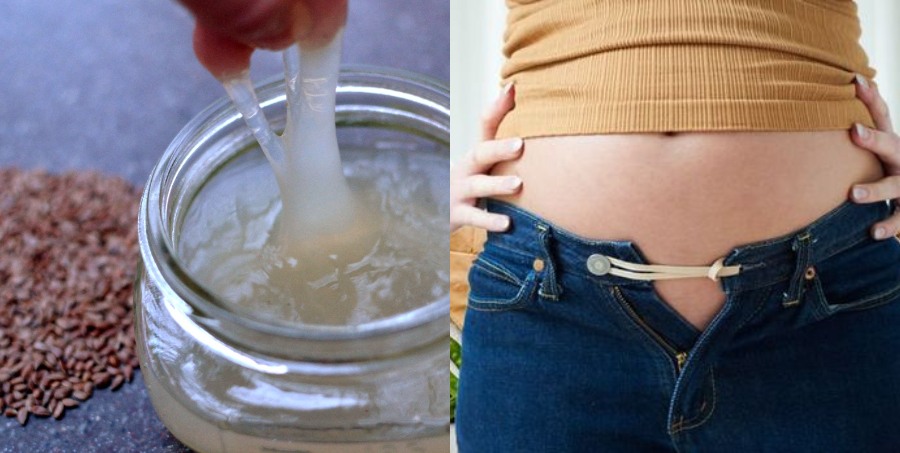Making that extremely important decision to lose weight and get into the shape you have always dreamt of, is a resolution that will bring along multiple and surprising benefits, not limited to how well clothes fit and how lab profiles have fallen back to the correct range. The correct kind of diet and weight loss strategy can make you feel energetic with improved stamina and mood, but if you start to feel grumpy and cranky all the time while dieting, then you need to find out why. People report being “hangry” (angry because of hunger), experiencing mood swings and brain fog for the initial few weeks after they have started out on a weight loss diet and that’s quite normal because the body is adjusting to calorie cutting, but when mood swings become a normal occurrence, it would become be prudent to take action so that constant irritability and fluctuating mood does not push you off the weight loss wagon. In this post, we will explain in detail how to beat dieting related mood swings.


What Causes Mood Swings on a Weight Loss Diet?
As we have mentioned earlier, the initial psychological reactions such as mood swings, brain fog, and low energy level can happen because of change in blood sugar levels, stress, and even change in gut flora which can affect psychological issues since the gut produces a chemical called serotonin that is needed to regulate mood. Diet-related mood swings would be temporary and would stop once the body switches gear from an engine that runs on glucose to one where fat gets burnt as a source of energy. To ensure such a transition takes place smoothly, and that the body starts shedding extra fat, you have to find out what’s causing the mood swings and tackle them effectively.
14 Ways to Beat Dieting Related Mood Swings:
1. Make Sure you are Following the Right Kind of Weight Loss Diet: Fad diets that are based on extreme food deprivation can keep you in a constant state of hunger, and can be a reason for your foul mood and crankiness. Food deprivation should never be the formula for weight loss and that’s why starting on a healthy diet such as on Rati Beauty app, would help you shed extra weight by eating the right kind of food and in the right amount, so that you get to the calorie deficit mode smoothly without unnecessary mood swings. Download the Rati Beauty app for more details about various diet programs.

2. Control the Hunger Hormone “Ghrelin”: When the hunger hormone “ghrelin” goes out of whack, it can increase irritability, trigger headaches, and even make you dizzy. If you wake up “hangry” in the morning, blame it on high levels of ghrelin. In this post, we discuss in detail “20 Ways to Control Hunger Hormone Ghrelin to Lose Weight” in this post.
3. Avoid Stress Eating: Stress eating or emotional eating is a situation where one eats to feel good and pleasant, to cope up with trauma, to relieve stress, rather than to satisfy hunger. When someone depends on food to cope with certain situations or to relieve stress, preoccupation with food takes over that person’s life and before he/she realizes, and they would end being obese with a high risk of developing type 2 diabetes and heart disease. Most comfort foods have loads of calories, sugar, unhealthy fat, and simple carbohydrates and you may feel good while eating them, but your body is going to store most of such food as fat, as a result of which, your weight will shoot up. Also, when you eat such food, your brain rewards you by releasing “feel-good chemicals” such as endorphins, serotonin, and dopamine. Such feel-good chemicals makes one feel happy by elevating mood, and calming down nerves. But they cause sharp insulin spikes that provide instant energy but the subsequent drop in blood sugar level is just as steep, causing fatigue and lack of energy, making you crave for “unhealthy food” all over again. You start to depend more and more on such unhealthy food to deal with jittery nerves because processed and junk food releases a huge amount of dopamine and other feel-good chemicals compared to healthy food. It’s extremely important to totally avoid food with transfat, sugar, refined carbs to avoid mood crashes.
4. Get Rid of Added Sugar Completely: On a weight loss diet, people cut down sugar and refined carbs, and when the blood sugar dips, it leads to mood fluctuations and lack of energy. It’s important to cut added sugar from the diet and switch to natural sugars (from fruits for example), to avoid unstable blood sugar levels. When you consume sugar, the brain releases hormones like dopamine and serotonin which would make you feel good (albeit temporarily). So, when you decide to give up on added sugar, for a few days, your body will revolt and make you feel grumpy and irritable. When you cut back on sugar by avoiding candies, cookies, cakes, processed and canned food items, packaged food, refined carbs, etc., you will be doing yourself and your body a huge favour because it would mean low insulin spikes, less inflammation in the body, and almost nil mood swings. Good alternatives or should we say better alternatives to refined sugars are found in fruits, jaggery, and honey.
5. Eat Food Rich in Fiber: Fiber is an important factor that is so essential to losing weight. A diet that lacks fiber will make it difficult to lose weight. On the contrary, a diet which is rich in fiber has positive impacts on overall health, from improving digestion to mood swings. Fiber also helps reduce appetite to a great extent by regulating the production of hunger hormone “ghrelin.” Fiber content also reduces one’s appetite by slowing the movement of food through the gut. Since fiber has low glycemic index, it also does not spike up insulin and thus reduces the chance of extra calories getting stored up as fat in the body. Check out “12 Handy Tips To Add More Fiber to Diet for Weight Loss.”
6. Amp up the Protein Content: When you consume protein, it increases the levels of the satiety hormones, reduces appetite by lowering the level of hunger hormone “ghrelin.” This way, you boost satiety hormones and keep the hunger hormones in check, which in turn means that you will be less likely to binge. Here are “15 Food Sources of Lean Protein that Can Help with Weight Loss.”
7. Pick Complex Carbs over Refined Carbs: Refined carbs can cause sharp rise in insulin where complex carbs increase blood sugar slowly and steadily. Carbs are needed synthesize serotonin, which is a mood-boosting neurotransmitter, and that’s why picking the right kind of carbs over the wrong carbs is vital to avoid foul mood. Read about the “Best Carbs to Eat for Weight Loss” in this post.
8. Omega-3 Fatty Acids to Lose Weight and Improve Mood: If your diet is devoid of healthy fats or omega-3 fatty acids, that’s a big drawback because healthy fats not only boost weight los and fat burning, they also improve mood and brain power. Since approximately 60% of our brain is made of fat, omega-3 fatty acids are needed for proper brain function. Almonds, walnuts, flaxseeds, pumpkin seeds, fish oil, chia seeds, hemp seed oil are all good sources of omega-3 fatty acids.
9. Indulge in a Cheat Meal Once a Week: A “cheat meal” once a week is a necessary evil in any weight loss plan. If someone asks you to swear off your favorite food, then you are most probably following the wrong kind of diet plan. Cheat meals are essential to reset metabolism, satisfy cravings, prevent binge eating, overcome weight loss plateau, and most importantly, to avoid thoughts about food, which can in turn lead to irritability and bad mood.
10. Start with Low Intensity Exercises: When you are starting out on a diet, it would be prudent not to start with exhaustive workout routines that sap all energy, and leave you with little energy through the day. Settle into the dieting routine, and then slowly increase the intensity of exercise. Also, it would be great to indulge in NEAT activities (read about them here) to burn calories here and there throughout the day. Exercise can release chemicals in the brain that lift your mood but doing exhaustive routines at the beginning of your weight loss diet can cause dip in energy reserves, and affect mood instead.
11. Indulge in Dark Chocolate: A small bite of dark chocolate can make you feel full and satiated, and help prevent binging on high-calorie junk food. It is also full of antioxidants and compounds that alleviate and improve mood. The high polyphenol content in dark chocolate increases calmness. It also contains a lipid called anandamide which is also called as “the bliss chemical” which triggers motivation and pleasure. So, the next time around you are feeling low, nibble into that bar of dark chocolate without any guilt.
12. Don’t Be Too Hard on yourself: Obsessing over every single calorie and feeling guilty after indulging in one meal that’s out of diet can increase cortisol levels which can make you edgy and stressed out. Consider each meal as a new start and avoid the “all or nothing” attitude. Love your body and work towards making it fitter and better.
13. Sleep for at Least 7 Hours: Sleep deprivation is directly linked to weight gain, obesity, increased stress, and irritability. Added to this, bad sleep can hamper the gut flora by hampering the physiological stress response, and an imbalanced gut can totally stall the whole weight loss process. So, aim for getting at least 7 hours of sleep each night to lose weight and to correct mood swings.
14. Mindful Eating: Mindful eating makes you more conscious about the kind of food you choose to eat, the quantity you are consuming, preventing overeating, and helping you make the right kind of food choices. It makes you more aware of cues from the satiety hormone “leptin” on when to stop eating the moment you are full. It also takes the burden of unnecessary stress regarding the quality and quantity of food. Read about “9 Mindful Eating Hacks to Eat Right and Lose Weight.”
What Would Happen if you Stop Eating Sugar For 15 Days
12 Handy Tips To Add More Fiber to Diet for Weight Loss





